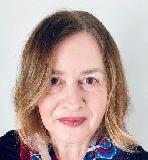Blog
Unless otherwise stated, content is shared under CC-BY-NC Licence
Tune in on this vlog to hear why Jisc's Paul Stokes Preserves
Paul Stokes is Subject Matter Expert (Digital Preservation) at Jisc; Director of the Digital Preservation Coalition; Chair of the DPC Advocacy and Community Engagement sub-committee; Director of the Open Preservation Foundation; Director of OPF NL.
For World Digital Preservation Day 2025, we invited DPC Members and Supporters to share their reflections on this year’s theme, “Why Preserve?”. As part of this series, Paul Stokes offers his perspective on the importance of safeguarding our digital heritage. Watch the vlog below to hear his thoughts!
Why Preserve? A stroll with Garth Stewart for WDPD2025 ...Watch this vlog!
Garth Stewart is Head of Good Practice with the Digital Preservation Coalition
For World Digital Preservation Day 2025, Garth Stewart walked over to the Argyll Street Ash Tree in Glasgow and recorded a vlog for us all. Watch it now to hear Garth's thoughts on the need to preserve!
Why Preserve? The Voice from China's National Digital Preservation Program (NDPP)
Zhenxin Wu is the deputy director of NDPP (National Digital Preservation Program), and she is also a senior researcher of the National Science Library, Chinese Academy of Sciences. Additionally, she is a professor of school of economics and management, University of Chinese Academy of Sciences in Beijing, China.
[Chinese version below / 中文版本见下方 ]
It is well-known that we live in an era where the creation, dissemination, and preservation of knowledge are fully integrated into a digital ecosystem. Digital formats have already become the most popular format for S&T outcomes such as journal articles, academic monographs, and technical patents, etc. Meanwhile, rich media content, academic social networks, digital humanities, and digital arts have increasingly become indispensable information resources across all fields. All signs clearly indicate that in our current era, the long-term preservation of knowledge and culture is almost synonymous with the long-term preservation of digital information.
 The National Digital Preservation Program (NDPP), a collaborative preservation system of six institutions, including libraries and information institutions, is responsible for the long-term preservation of our knowledge and culture in China.
The National Digital Preservation Program (NDPP), a collaborative preservation system of six institutions, including libraries and information institutions, is responsible for the long-term preservation of our knowledge and culture in China.
Why We Preserve: Developing RMIT’s Digital Preservation Strategy and Roadmap
Cassie Shaw works as Digital Archivist at RMIT University Archives
In August 2025, the RMIT University Information Governance Board endorsed our Digital Preservation Roadmap. It was an exciting mile marker for our team at the University Archives, after close to three years’ work on both the roadmap and our underlying Digital Preservation Strategy 2024-2031, which is a foundational document for improving digital preservation capability and capacity across the University.
RMIT University Archives operates as the institutional repository for university records that are evidence of the functions and activities performed throughout RMIT. Our mission is to acquire, organise, preserve and publicise such materials and to assist researchers in their use. This is our what.
We are always conscious that maintaining compliance with laws and regulations that support accountability, transparency and authenticity is key, but in this process, we also focussed on how important it is to keep the stories of the work we all do. We spend our work lives doing useful, interesting and valuable things that we want to remember, to recognise both the fact that we do these things, but also that investment in great ideas, work and people. This is our why.
Meet Eli in this WDPD 2025 vlog by Holly Duncan!
Holly Duncan is the account executive for Preferred Media and DPC Supporter
For World Digital Preservation Day 2025, we invited DPC Members and Supporters to share their reflections on this year’s theme, “Why Preserve?”. As part of this series, Holly Duncan of Preferred Media offers her perspective on the importance of safeguarding our digital heritage. Watch the vlog below! You will find the matching story in Holly's blog here.
Discover more Why Preserve? stories in our vlogs, blogs, and on our virtual wall. And if you’d like to add your own reason(s), simply complete this short form to share your message with the community.
WDPD 2025 Why Preserve: Capturing the race that stops a nation
Carey Garvie is Senior Digital Preservation Specialist at State Library Victoria.
November is rolling around again, bringing with it World Digital Preservation Day. While most of my colleagues are planning how they are going to celebrate the Melbourne Cup, which falls two days before, I’m pondering this year’s World Digital Preservation Day theme: ‘Why Preserve’. In some ways, the Melbourne Cup is an interesting example of this for State Library Victoria. It is said to be the race that stops a nation, certainly for Victoria where public holidays tend to be based on significant sporting events, it is a day off for most people. Running since 1861, even back then public servants and bank officials got a half day to celebrate the occasion.
So, what is it about the Melbourne Cup that makes it so famous? For the serious punters, it’s all about the horses, trainers and jockeys and there are many a story to be told about these. When I think about the Cup, though, I think about the people. The Melbourne Cup is held as part of the Spring Racing Carnival which has become a social event in the Melbourne calendar. People travel from all over with tickets so highly sought after that some only make it to the members’ carpark which itself has become an iconic venue for celebrating the day. Not to mention the now-famous Birdcage where you might spot a celebrity or even a Royal!
Why Preserve? Because Every Story Deserves a Future - And a Direction
Holly Duncan is the account executive for Preferred Media and DPC Supporter
This World Digital Preservation Day, we’re reflecting on two questions: “Why preserve?” and “Who benefits?”
The answer is simple: everyone does. From cultural institutions protecting centuries of heritage, to brands rediscovering the power of their archives, to future technologies learning who we are — preservation is no longer just about storing files. It’s about shaping identity, protecting truth, and creating pathways for innovation.
At Preferred Media, we see this every day. So, to explore the “why,” let’s meet two very different perspectives: Margot, a traditional archivist, and Eli, a futurist working at the intersection of ethics and artificial intelligence.
We will WARC you: preserving access to published CD-ROMs at NLA
Celeste Vallance, Elizabeth Franklin and Libor Coufal are members of the Digital Preservation team at the National Library of Australia
Over the past ten years, the National Library of Australia has worked on establishing a holistic and systematic digital preservation program. With all but one of our end-to-end digital preservation workflow steps now in place and running as business-as-usual, work has recently started on implementing the final stage: enhancing access to digital collection material and facilitating its long-term preservation.
A message from tomorrow
William Kilbride is the Executive Director at the Digital Preservation Coalition (DPC) and is writing from the iPRES 2025 conference in Wellington ...
I bring greetings from tomorrow.
This year I am privileged to be spending World Digital Preservation Day in the remarkable company of the National Library and Archives of New Zealand, host to the iPRES conference 2025. So I am able to send you this message from the future and (at least from the perspective of Wellington Harbour) to make a promise of sunshine, blue skies and calm waters.
The Reel Deal: Why Audiovisual Heritage Matters
Michael Popham is Digital Preservation Analyst at the Digital Preservation Coalition (DPC)
The 27th October isn’t just the day we celebrate the births of the noted humanist Erasmus, violin virtuoso Paganini, poet Dylan Thomas, and comedian John Cleese – it also happens to be the date UNESCO selected as the World Day for Audiovisual Heritage. An annual reminder that, as UNESCO points out, “Audiovisual archives tell us stories about people’s lives and cultures from all over the world. They represent a priceless heritage which is an affirmation of our collective memory and a valuable source of knowledge…”




















































































































































